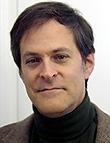Professor to Conduct Earthquake Preparedness Seminars

Matthew Springer
As the impact from the devastating 7.0-magnitude earthquake in Haiti on Jan. 12 continues to unfold, the UCSF community is reminded of the critical need to take steps to prepare for and respond to temblors.
In fact, January proved to be a busy month for earthquakes; five significant earthquakes have occurred since Jan. 7, 2010, when the San Francisco Bay Area was struck by a 4.1-magnitude earthquake, according to the US Geological Survey’s earthquake webpage.
Matthew Springer, PhD, an associate professor of medicine in the Division of Cardiology, is again conducting earthquake preparedness talks for faculty, staff and students beginning today (Monday, Feb. 1.)
Springer has delivered these lectures at UCSF as a public service for the past two years and posts useful information on how to become better prepared for earthquakes on his website.
Here is the full schedule of his upcoming earthquake preparedness talks:
- Monday, Feb. 1: Parnassus, Health Sciences West, room 303, 4 p.m.
- Friday, Feb. 5: Mission Bay, Rock Hall, room 102, noon
- Monday, Feb. 22: Laurel Heights, room 263, noon
- Wednesday, March 10: 2300 Harrison St, room 243 A/B. 10 a.m. (UC ID required)
- Thursday, March 25: Mount Zion, 2340 Sutter, Lurie Seminar Room, 11 a.m.
- Thursday, April 1: Parnassus, Health Sciences West, room 302, noon
- Friday, April 2: Mission Bay, Rock Hall, room 102, 10 a.m.
- Wednesday, June 9: San Francisco General Hospital, Building 3, room 505, noon (pick up phone on 1st floor hallway for access)
- Friday, June 25: San Francisco Veteran’s Administration Hospital, Building 7, room 112, noon.
Springer received his BA degree from the University of California, Berkeley in 1985 and his PhD degree from Stanford University in 1992. He did postdoctoral research at Stanford and continued his research there as a senior scientist until joining the UCSF faculty in 2003.
UCSF Today caught up with Springer via email to ask him these questions.
Q: Why did you become interested in earthquake preparedness?
A: I personally experienced the 1971 Sylmar earthquake and the 1989 Loma Prieta earthquake, and I grew up in Northridge, after which the 1994 earthquake is named. My parents and the neighborhood where I grew up were very affected by that earthquake. Over the years, I’ve gradually increased my earthquake preparedness, learning as I go, and a few years ago, I realized that my apartment was a pretty good model for preparedness in terms of not only emergency supplies, but also how it was set up, what was braced, what was avoided, etc.
I also realized that my lab and those of my collaborators contained many people whom we had recruited to come live here to work with us, but nobody was presenting them with easy information on HOW to live here. (Like if you get recruited to work in Manhattan, somebody will probably tell you not to jog in Central Park in the middle of the night.) I prepared a talk for a lab meeting, decided that it had a lot of useful information for other people as well, and started making it available to the community through UCSF and the San Francisco Public Library.
Q: Have you received any special training in disaster prevention or response?
A: I am a member of the San Francisco Fire Department’s Neighborhood Emergency Response Team (NERT), but I should stress that this occurred AFTER I started giving these talks, and that I do not have an official disaster prevention background. That’s very important. That being said, however, my unofficial background is quite solid because the approaches that I’ve adopted in my own home are all quite mainstream and have been viewed without complaint by various NERT leaders. This is more a matter of there being all the information that people need and all it takes is for someone to compile that information for everyone else into an easy-to-understand presentation with photo examples.
Q: Do you live in San Francisco and, if so, how did the Loma Prieta earthquake affect you?
A: I live in San Francisco and was at Stanford during the Loma Prieta earthquake. I was outside and got tossed around quite a bit, but I think I was lucky because I quickly saw that there was nothing that could fall on me so I just rode it out and watched bicyclists fall over.
For more information about these earthquake talks, email Springer.
Related Links:
Home Earthquake Preparedness Resources
Matthew L. Springer, PhD, Division of Cardiology